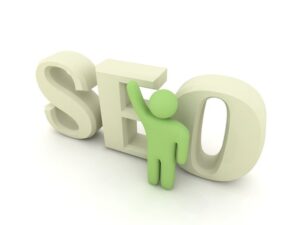 The SEO Arms Race – Chasing Googles Algorithm Changes
The SEO Arms Race – Chasing Googles Algorithm ChangesThe SEO arms race is on! Optimisation is all about getting a website more visible on the internet.
However the problems for all webmasters is exactly how to do this.
The SEO arms race is on! Google changes its algorithm around once per day (according to Super-Google representative Mr M Cutts), this means around 350-400 changes per year.
If the search algorithm was changed once a year, or once a month, webmasters would reverse engineer the changes.
Websites that are not relevant to web searches would start to appear. The SEO arms race is about trying to find what changes are due to happen.
SEO (or website optimisation) is a complex and constantly changing form of marketing to improve website ranking on search engines such as Yahoo, Bing and Ask. Google is the dominant search engine since it is the web browser that is loaded onto most websites and smartphones.
The process involves getting traffic to your website from the main UK search engines:
Each of these search engines use a different formula (known as a website algorithm) to rank all UK websites, which changes throughout the year.
SEO is very much an unknown, since each of the search engines keeps its formula for ranking all UK websites a secret. The best guess is that SEO broken down into 2 main areas:
All search engines use complex algorithms to rank all UK websites based on how relevant they think it is to the user’s search query. These algorithms change several times a year as search engines evolve.
The quality of your website content is important, but not everything. The usability of your site and the amount of backlinks your website has from trustworthy sites can all help to increase your site’s visibility and help you rank higher on the search engine results page (SERPS).
The load speed of your website also now is considered as part of the mix.
The hosting of your website is important (which effects page load speed).
Your social presence is another factor that effect where your appear on the web. When social media landed, sites like Facebook were disregarded. In the following years, social media is taken into account big time!
Users who have made a relevant search are more likely to click on your website, interact with your brand and make a purchase. If your website gets people returning, this is also taken into account (news websites for example have returning visitors).
Google acts in the best interests of web users, non paying customers that are searching for website results.
If Google can deliver what users are looking for on page 1 of its results, then they are doing their job.
The reason that most people use Google over other search engines (such as Yahoo, Bing, Aol etc.) is because of them being able to find what they are looking for quickly.
Stemming was a recent update and is a Bayesian Spam Filter and was introduced to prevent keyword spamming. So the search results will consider the keywords input, but also keyword variants in the search results.
However this does not mean that webmasters should swap keywords for their variants, just to incorporate the variants into the pages.
Location results was another update that was made. So depending where a web user is in the world/country, results are displayed that are done locally (as Google is trying to second guess search results in order to save the web user time).
There is a way to cheat the system, to ensure that for every desired keyword, your website will appear on page 1 ever day. Google made this back door in order to fund it’s business, and it is called pay per click advertising.
In previous Google updates, it was said that ‘Content Is King’ and although there is still some truth in this, things have moved on.
Google does take content into account, but this is balanced out with links to other websites.
If you have relevant websites pointing at your content, then this is stronger than the content alone.
This ties in with ‘keyword density’ as Google does penalize websites that oversell themselves on target keywords.
An example would be ‘Starbucks’ that appears on page 1 for the keyword ‘coffee’ yet only has the keyword appearing a couple of times on the homepage, but looks at much more.
Bearing in mind webmasters do need to try to second guess the search engines, there is the race to get onto page 1.
Considering that page 1 can only hold 10 websites, getting onto page 1 for target keywords (and staying there) is difficult.
Link building is a big part of optimisation, search engines judge a website based on who is linking to them and how relevant/quality those links are.
For many companies, getting optimisation and PPC help is an essential part of their marketing success.
Choosing a marketing company to handle your SEO can be a challenge, as there are thousands of SEO ‘experts’ in the UK to choose from.
The alternative is paid advertising, which is what search engines are funded by! The SEO Arms Race is on!